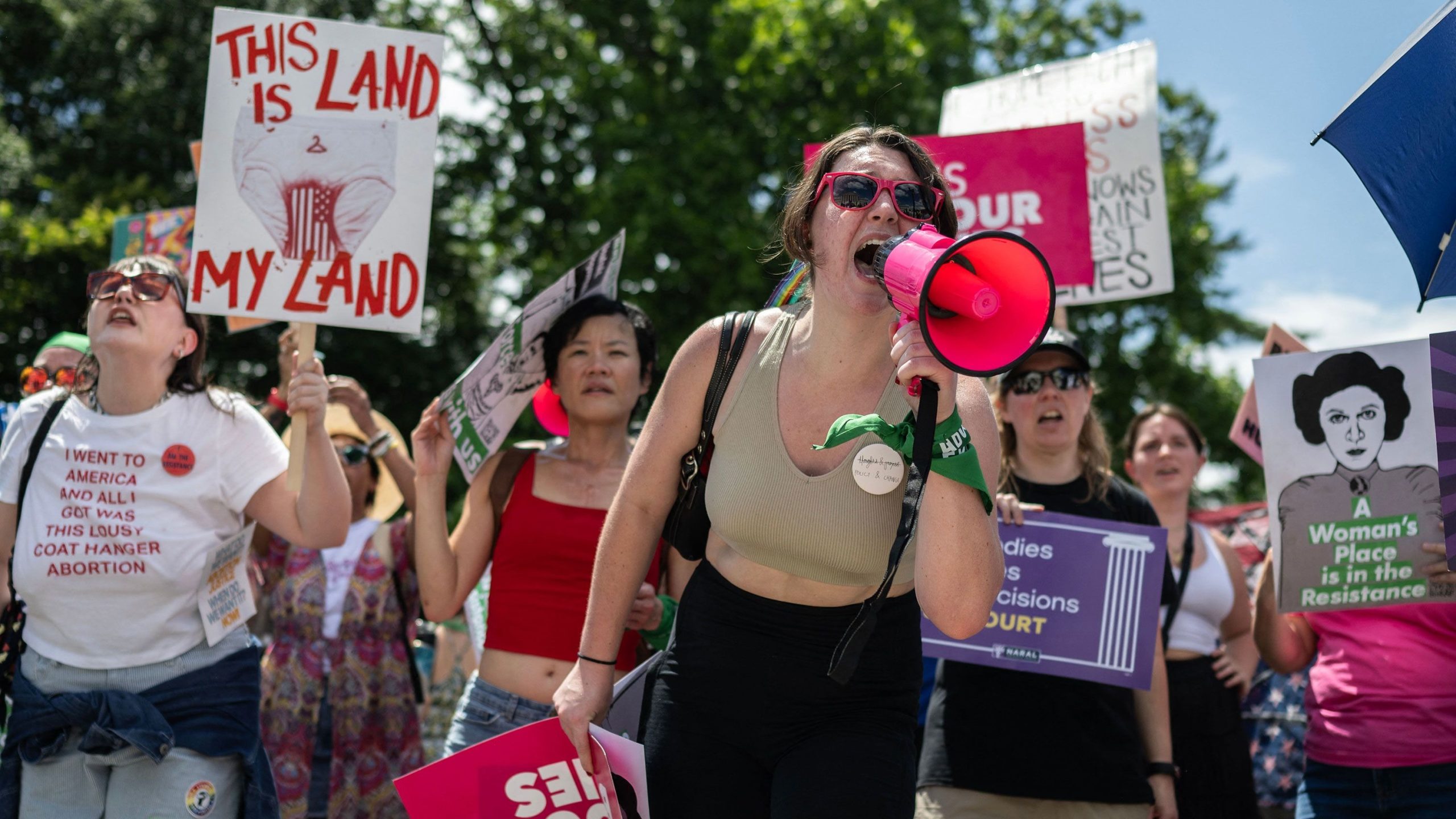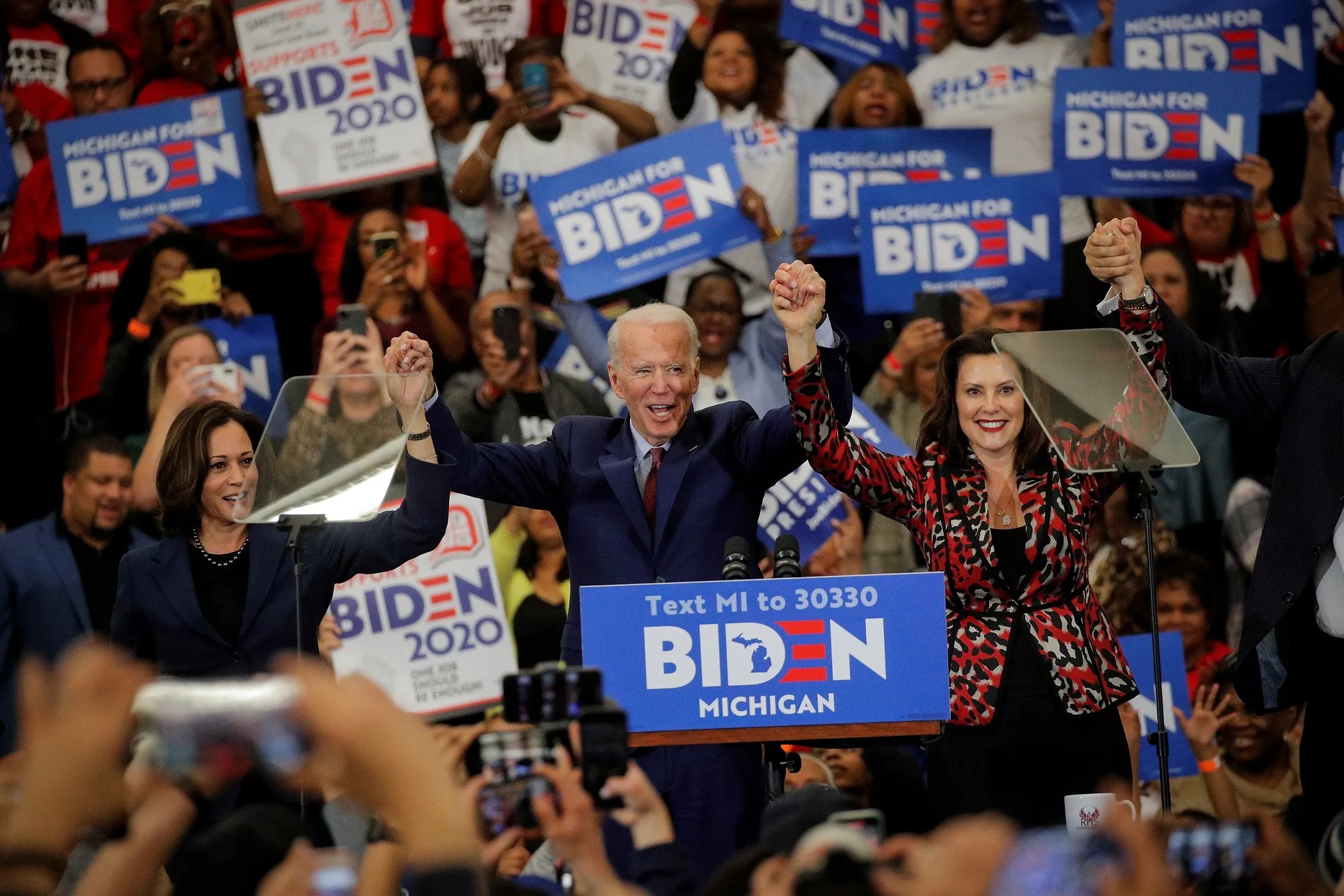President Biden’s re-election campaign is finding encouragement in a surge of support from female voters, setting a positive tone amid challenging polls and a tough political landscape.
The President has been actively courting women voters, especially around last month’s Roe v. Wade anniversary, aligning with increased campaign efforts and focus on key states for the 2024 election, such as South Carolina, Michigan, and Nevada.
Recent surveys indicate a rise in support for Biden among female voters. A Quinnipiac poll published this week revealed that 58% of women supported Biden, up from 53% in December.

Women Provide Hope for Biden Campaign (Credits: CNN)
Meanwhile, 53% of men surveyed supported Trump, showing minimal change from 51% in December. The poll results suggest a positive shift for Biden, particularly propelled by increased support from female voters in recent weeks.
In the 2020 election, Biden secured 55% of the women’s vote, while Trump garnered 44%, according to Pew Research Center data. This marked an improvement for Trump compared to 2016 when he received 39% of the women’s vote, and Hillary Clinton secured 54%.
The overturning of Roe in 2022 presented an opportunity for Democrats to connect with women voters, and Biden has actively focused on reproductive rights issues to appeal to this demographic.
The Biden campaign emphasizes his commitment to protecting women’s right to make healthcare decisions and criticizes Trump’s stance on abortion rights.
The recent defamation case loss to E. Jean Carroll and Trump’s perceived “unforced errors” in targeting figures like Nikki Haley have the potential to impact Trump’s standing among women voters.
Denise Gitsham, a Republican strategist, points to a troubling trend, expressing concerns about a lack of respect for women and the targeting of female figures in Trump’s rhetoric.
The Biden campaign sees the gender demographic shift as a positive development, indicating a lead for Biden in the head-to-head comparison with Trump.
They emphasize Biden’s focus on issues vital to women, such as reproductive rights, and argue that Trump’s agenda, particularly on abortion rights, is unpopular among female voters.
However, Republicans are cautious about this trend, noting similarities to the challenges faced in the 2020 election. Gitsham suggests that Trump’s “unforced errors” and rhetoric targeting women could be detrimental to winning female votes within the Republican party.
As the 2024 election approaches, both Democrats and Republicans are conscious of the crucial role women voters play in shaping electoral outcomes.
The recent legal battles involving Trump, such as the E. Jean Carroll case, and the attention on public figures like Taylor Swift, who may influence women voters, add further complexity to the political landscape.
While Trump’s campaign expresses confidence in his chances and cites polling data, experts caution that the political landscape is dynamic, and there is room for shifts in voter sentiment before the November election.
The findings from the Quinnipiac poll reflect expected gender gaps in voter preferences between Republicans and Democrats, with women voters potentially playing a decisive role in shaping the electoral outcome.























